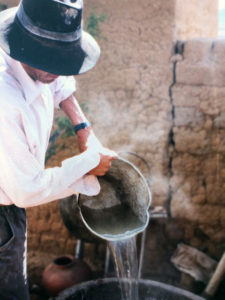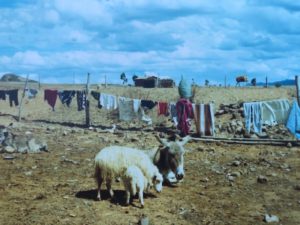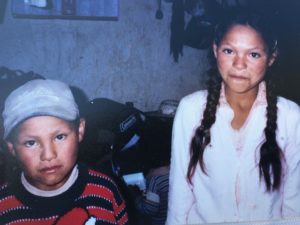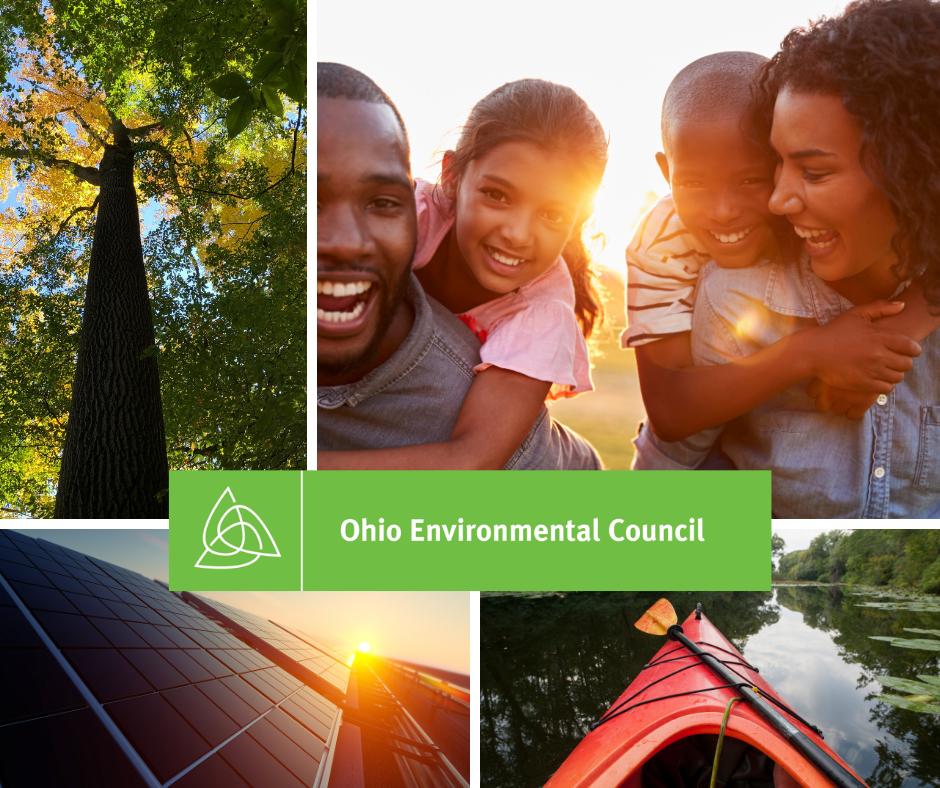Blog
Tagged In: Clean Water, Drinking water
Water Access for Every Ohioan: OEC’s Fight to Secure Safe, Clean and Affordable Water During COVID-19 and Beyond
Melanie Houston, Managing Director of Water Policy & Chief of Organizational Planning, April 23, 2020

When I was in college, I had the privilege of studying abroad in Bolivia for a semester. One of the most poignant memories from those four months abroad was my experience living with a family in rural Mizque for several days. The mother and daughter in my rural family had to carry water for drinking, cooking and washing from the nearest stream to their home. My study abroad leaders instructed me to bring my own bottled water for the stay, and I rationed it carefully. In Bolivia, clean water was a luxury for those, like me, who could afford it. But many families lacked consistent access to clean, safe drinking water from a well or water delivery system. As a result, they dealt with frequent gastrointestinal illnesses. It didn’t feel just to me at the time, and still doesn’t today.
Fast forward 18 years, and I am now the Drinking Water Director for the Ohio Environmental Council (OEC). At the OEC, I am charged with running campaigns to ensure that all Ohioans have access to clean, safe drinking water. And while the United States is a developed nation with great wealth and natural resources, there are still Americans—including Ohioans—who lack access to clean and safe drinking water. They have lacked access during water crises such as those in Toledo, Ohio and Flint, Michigan but they also lack access when they can’t afford a water bill and their water is turned off.

The coronavirus pandemic recently brought the issue of water shutoffs to the forefront of public discussion. Elected officials across the nation rose to the occasion and ordered moratoriums on water shutoffs at the local and state level. Many also required water be restored to those without service from previous disconnections. Yet, we know that efforts to restore water service have varied in terms of speed from city to city as record keeping varies. We stand with, admire, and appreciate the fierce, frontline water advocates who are monitoring these efforts and pressing for speedier action in their communities.
In Ohio, we saw Toledo lead the state with its moratorium effort. The action was in response to pressure by a coalition of water champions. The OEC, Junction Coalition and the Toledo Water Transformation Council partners had been working for months to address growing concerns about the impact of increasing water rates and monthly billing on low-income residents. The conversation grew more urgent as fears about the coronavirus public health crisis grew. In a great victory for advocates, Toledo City Council passed an ordinance on March 10 issuing a moratorium on water shutoffs for public health reasons during the coronavirus pandemic.
Soon, other cities like Cleveland, Columbus, Findlay, and Elyria followed suit. Then, the Public Utilities Commission of Ohio (PUCO) ordered all private utilities in the state to review disconnection and other practices that could pose a hardship on water users during the COVID-19 pandemic. This resulted in Ohio’s private (investor-owned) utilities suspending water shutoffs for customers whose bills were overdue. Shortly thereafter, the state put out an order directing public water utilities to also suspend water shutoffs, restore water service, and waive fees for doing so. The Ohio EPA quickly implemented guidance for these public utilities which included restoring water service for anyone disconnected going back to January 2020.

An old saying goes, “Water is life” and it is true.
Water is a basic need, essential not only for survival, but also for long-term health and well-being. Now, in the age of a pandemic, it is even more critical that all Americans have water access and security for their health and the health of their community. With the CDC recommendations to wash hands frequently and for 20 seconds at a time, everyone needs water running dependably from the tap now more than ever. Everyone needs clean, safe drinking water to keep their bodies hydrated and healthy. We all need water security, regardless of income or ability to pay.
Access to safe drinking water is an essential right, especially during a public health emergency. At this time, we are reminded of our dependence on this incredible natural resource — and we redouble our mission to protect it. As awareness about the connection between public health and water access is heightened, we will make the best of this moment of to advocate for basic access to water, for affordable water, and for clean water for all at all times.
